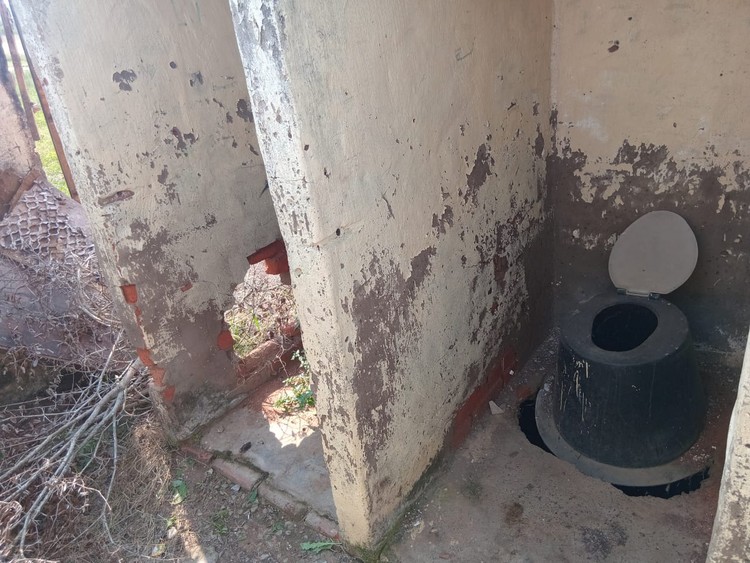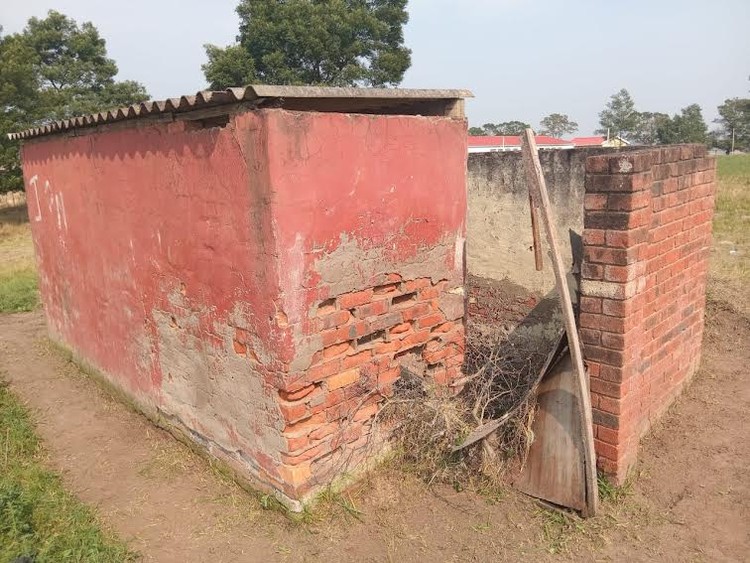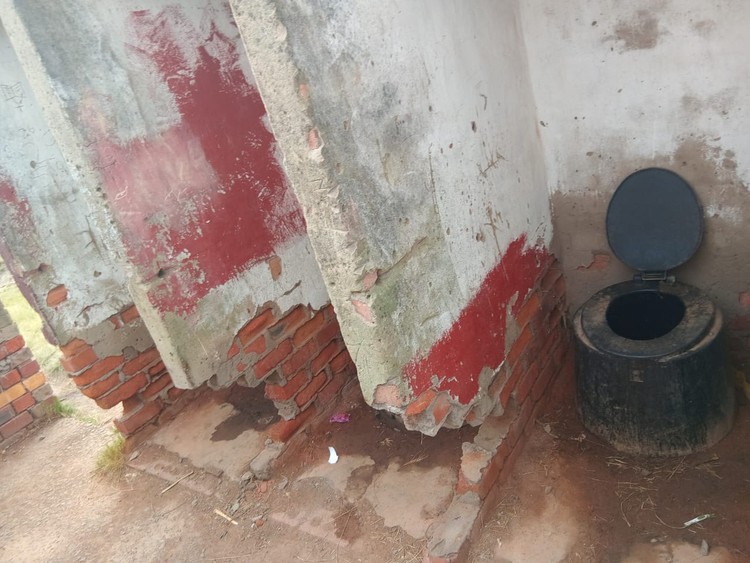Teachers at Eastern Cape school give up their toilet to grade R learners
Jongikhaya teachers and learners share broken pit toilets
The school’s girls’ toilets are old and dangerous. Photos: Nombulelo Damba-Hendrik
- Teachers and learners at Jongikhaya Junior Secondary School in Lusiksiki in the Eastern Cape share dangerous old pit toilets.
- Teachers have given up one of their less dilapidated toilets for grade R learners, after a child nearly fell into one of the learners’ pit toilets.
- The school is not on the Sanitation Appropriate for Education (SAFE), according to the Eastern Cape education department, and will have to wait for additional funding for the toilets to be fixed.
Teachers and learners at Jongikhaya Junior Secondary School in Lusikisiki in the Eastern Cape who are using dangerous old pit toilets may be in for a long wait for proper toilets.
According to Basic Education Minister Siviwe Gwarube, almost all the schools identified under the Sanitation Appropriate for Education (SAFE) programme have been provided with proper toilets. Answering questions in Parliament in July this year, Gwarube said in the country as a whole, 3,265 schools out of 3,372 had been provided with safe toilets, and work on toilets at the remaining schools should be completed within the 2025/26 financial year.
But according to Eastern Cape Department of Education spokesperson Malibongwe Mtima, Jongikhaya is not one of the 427 schools in the province which are on the SAFE programme. Yet most of the toilets, built in 1998, are useless.
Jongikhaya has 179 learners, from grade R to grade seven. There are five girls’ toilets but only one is useable. There are five boys’ toilets, all in very bad condition. Teachers have two toilets but have given one up for the use of grade R learners.
Teachers have closed off some of the old toilets which are considered dangerous.
School Governing Body chairperson Phambili Zintonga said the school had been asking the department for new toilets for years. He said last year the department told them that they must choose one thing the school really needed fixed. “We informed the department that we are in need of toilets. The school principal sent them the pictures as requested. We waited, but instead the department built toilets for other schools. There was no communication about why we were skipped. We were told to wait for officials to come and they never did,” he said.
Zintonga said after an incident in which a grade R learner was saved by other learners from falling into a toilet, parents had told their children to use the bushes and the open field instead of the toilets.
“But teachers raised concerns as they realised that the bushes were also not safe. We then asked all teachers to share one toilet and let the foundation phase learners use the one that was used by male teachers,” said Zintonga.
“This is bad and the department does not seem to take it seriously,” he said.
Equal Education Researcher Kimberley Khumalo said the state of the toilets at Jongikhaya is a symptom of the government’s persistent neglect of rural schools and its failure to comply with the Norms and Standards for Public School Infrastructure. She said for years the provincial education department had failed to spend funds appropriately, missed targets, and failed to accurately report on school infrastructure backlogs and developments in the province.
“The inhumane toilet conditions that learners at schools like Jongikhaya are subjected to daily represent a gross abuse of learners’ rights to health, dignity, education, and even life.”
Some of the boys’ toilets are unuseable.
Mtima said the department is fully committed to protecting the health, safety, and dignity of all learners across the province. But, he said, progress was “significantly hindered by financial limitations, with the department facing an infrastructure backlog of R82-billion and [receiving] an annual Education Infrastructure Grant of only R1.7-billion”. [There are about 5,000 schools in the Eastern Cape. This implies on average they each need R16-million maintenance. This seems implausible to us. - Editor]
“To effectively address this urgent need, the department will require additional funding and resources to implement safe, sustainable, and dignified sanitation solutions for all affected schools,” he said.
When GroundUp spoke to him last month, he promised that the circuit manager and works supervisors would visit Jongikhaya in the first week of September.
School principal Vusumzi Magwanya told GroundUp on Monday that officials had visited the school and taken some photographs. But no promises had been made, he said.
Support independent journalism
Donate using Payfast

Don't miss out on the latest news
We respect your privacy, and promise we won't spam you.
Next: Joburg landfill closure threatens 140 livelihoods
Previous: Here’s what the government plans to do about plastic pollution
© 2025 GroundUp. This article is licensed under a Creative Commons Attribution-NoDerivatives 4.0 International License.
You may republish this article, so long as you credit the authors and GroundUp, and do not change the text. Please include a link back to the original article.
We put an invisible pixel in the article so that we can count traffic to republishers. All analytics tools are solely on our servers. We do not give our logs to any third party. Logs are deleted after two weeks. We do not use any IP address identifying information except to count regional traffic. We are solely interested in counting hits, not tracking users. If you republish, please do not delete the invisible pixel.



